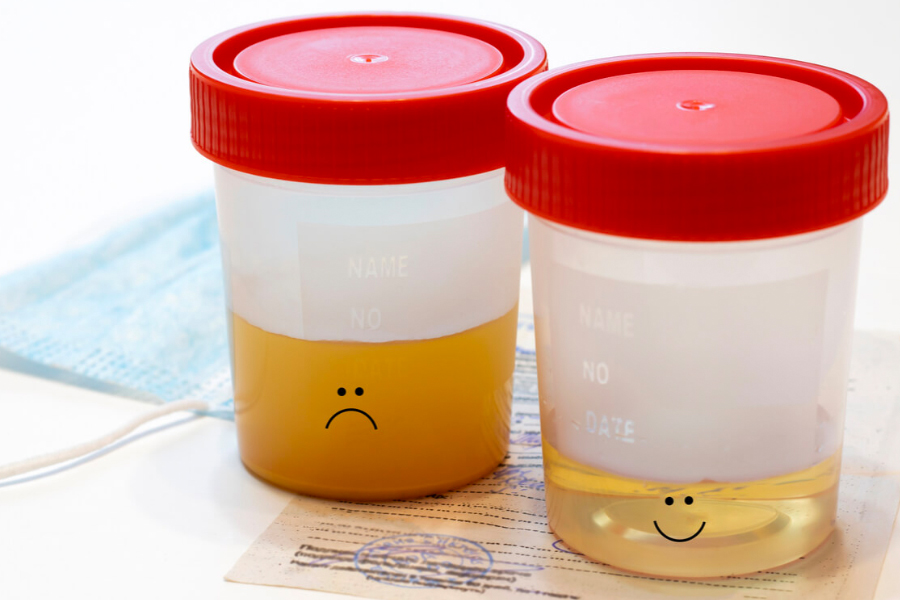Is cloudy urine serious?

The bladder system plays an important role in the human body. It eliminates waste products from the body by filtering the blood through the kidney process. The urinary system helps to maintain body fluid and salts in balance. You can see the importance of the bladder system when a person with kidney failure needs to go through haemodialysis to help them stay alive and healthy. When something is wrong with your urine, you should ask a doctor. Changes in urine may be signs of health problems but at times it could only mean harmless conditions.
You may have had at least one episode where the urine seems to be cloudy than usual. You end up wondering if it is serious. Well, cloudy urine in most cases is harmless and is not serious. Cloudy urine can be caused by many different medical conditions ranging from harmless to severe. A cloudy urine indicates there is increase of protein, crystalline substances, blood, pus or other chemicals in the urine. This increase may not be seen with the naked eyes but in a form of cloudy urine. Cloudy urine may be described as milky or turbid white urine.
In most cases of cloudy urine, it is harmless as it is caused by diet and dehydration. A person who consumes food high in phosphorus such as dairy products, meats, seafood, nuts, seeds and beans may have cloudy urine. It is resulted from the kidney trying to filter the excess mineral from staying in the blood. Cloudy urine caused by dehydration is very common in children and older adults. Dehydration is typically simply corrected by drinking more water. However, dehydration itself should not always be taken lightly. Severe dehydration can lead to loss of consciousness and even death. Thus, if you or someone you know struggles to keep hydrated or faces difficulty drinking plenty of water, do seek medical advice to prevent further complications.
Although cloudy urine is harmless in general, it is worth noting that in some instances, it could be a sign of an underlying health problem. Below are other causes of cloudy urine that should be taken seriously:
1) Urinary tract infection –
Symptoms such as burning or pain during urination, going back and forth the toilet to urine (frequent urination), leaking urine, foul-smell urine, presence of blood in urine, high grade fever and pain in the lower abdomen or back pain, may suggest an infection to the bladder system that includes kidney, bladder or urethra. Patients should see a doctor if any of these symptoms persist to get treatment such as antibiotics.
2) Sexually transmitted infection (STI) –
A disease that is passed through sexual contact which means not only sexual intercourse led to STI. Common STIs associated with cloudy urine include gonorrhoea and chlamydia. Common symptoms of STIs are pain when urinating, general itching, genital pain, sores on the genitals and foul-smelling discharge from genitals. STIs should not be left untreated as it could lead to other complications such as infertility and risk for HIV.
3) Kidney stones –
Kidney stones are crystals that form within the kidney. It is made up of salts and minerals in the body. Kidney stones may cause cloudy urine and the presence of blood. Urine may smell funny. Kidney stones may be eliminated by the body through the urine but in some cases, patients might need treatment such as medication to break the stones into smaller pieces or surgery to manually remove the stones. Symptoms of kidney stones include severe back pain or at the side of the waist, burning sensation when urinating and pinkish or reddish urine.
4) Prostate problems –
Prostate is a small gland within the groin of a male. It functions as supplying seminal fluid and mixed with sperm from testis that is vital for sperm’s viability and motility. Inflammation of the prostate can lead to build up of debris in the urine and turn it cloudy.
5) Kidney damages –
Kidney damages from diabetes may be causing cloudy urine. It is a sign the body tries to remove excess sugar that is unable to process in the body and into the urine. Untreated kidney damages will eventually lead to kidney failure.
In essence, cloudy urine can be caused by many causes. Even though in most cases cloudy urine does not pose a serious health threat, some may be signs of a serious disease. Cloudy urine accompanied with other symptoms should warrant a visit to the doctor. Cloudy urine that persists or smells weird should be checked by doctors. Cloudy urine should not be mistaken as foamy urine. Foamy urine may indicate kidney problems. It is important to keep your bladder healthy as it does affect the urine. To have a healthy bladder, you should:
- eat healthy food
- exercise regularly
- do pelvic floor muscle exercises such as Kegel exercises
- keep a healthy weight
- wear cotton underwear and loose-fitting clothes
- drink plenty of plain water
- wipe from front to back after using the toilet (specifically women)
- urinate after sex
- use the bathroom as needed and avoid holding urine too long
- take enough time to fully empty bladder when urinate
Leave a reply
You must be logged in to post a comment.











